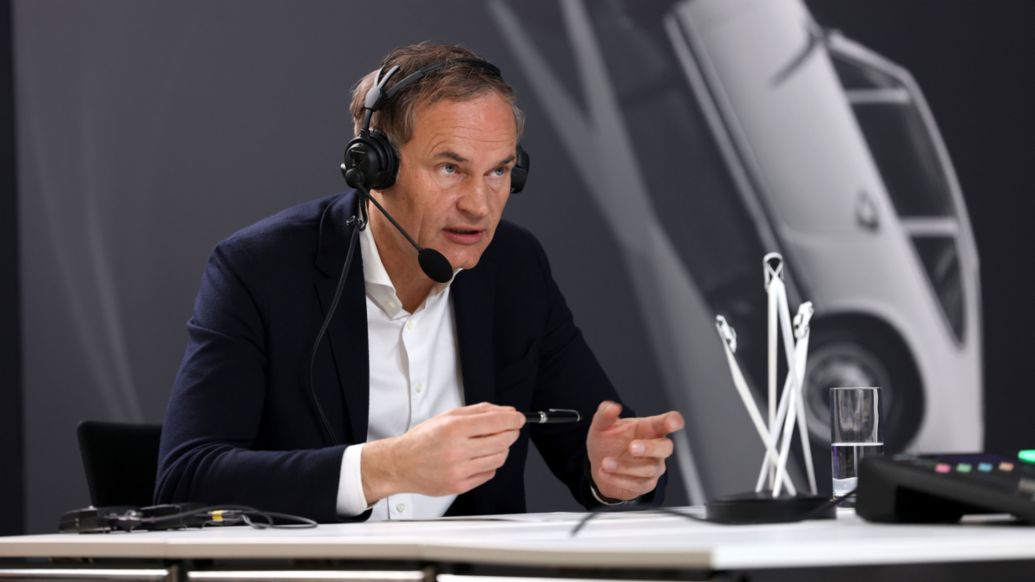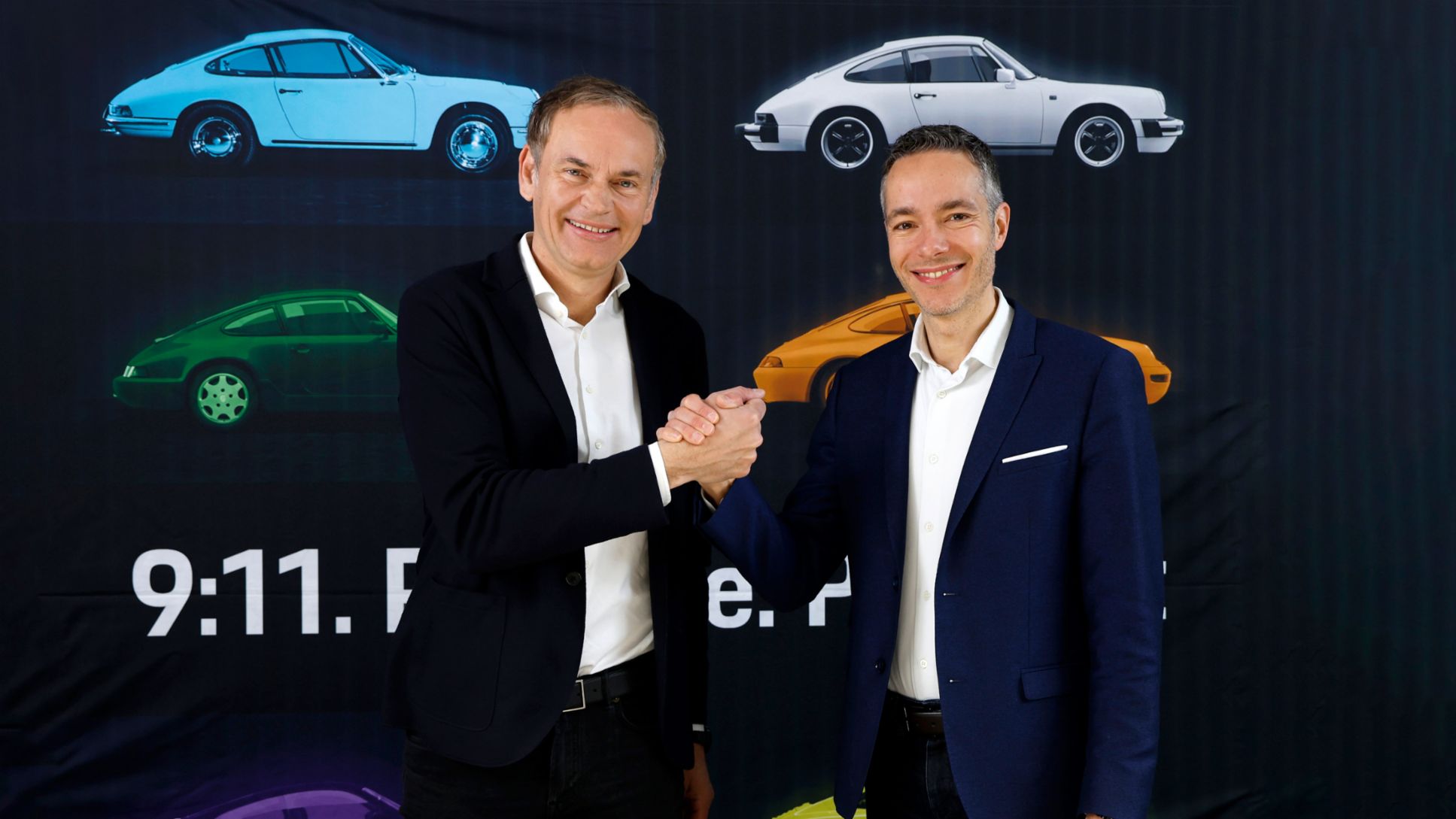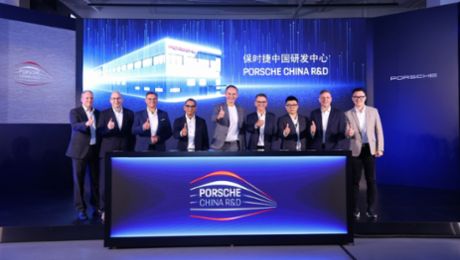According to Oliver Blume, there’s a very clear reason for the success of the businesses he oversees: "People from more than 120 nations work at Porsche and Volkswagen – this diversity is our strength," says the CEO. And there are certain key values that contribute, too: "It's about mutual respect," he tells the latest episode of the 9:11 Porsche Podcast. "And it's about mutual appreciation."
Blume has publicly expressed his commitment to democracy over the past few weeks. In his role as CEO of the Volkswagen Group he championed the benefits of diversity at a rally in Wolfsburg. In Stuttgart he supported the Business for Democracy declaration. "My attitude is not so much to be against something, but for something. And that is our democracy." For Blume, social cohesion plays an important role.

In the new 9:11 Porsche Podcast episode, the Russia-Ukraine war and inflation are also discussed. As are their respective contributions to the "growing uncertainty among people". "Many people lack direction at the moment. And a perspective,” he says. Economic conditions are changing rapidly: "Our prosperity cannot be taken for granted. We have to work hard to achieve it again and again."
"Which fields of technology will we need in the future?"
In Blume's view, two points are crucial for Germany's future. Firstly: "We need a cultural change in order to be successful. We must not complain. Instead, we need to roll up our sleeves. And create." Secondly, the country needs a comprehensive master plan. This plan must answer the central question: "Which fields of technology will we need in the future?". Blume names important areas: "Semiconductors, software, automotive, chemicals, medicine, battery technology and renewable energies."
Standing still often means going backwards. Even when companies present positive figures, as Porsche recently did with its 2023 financial year results. "The biggest danger is that you sit back after successes," says Blume. He is not worried that this could be the case at Porsche: "The Porsche team always wants to do things even better. This ambition is what sets them apart. And that inspires me day after day."
He has often referred to thinking in terms of opportunities. Especially when faced with a challenge. There are plenty of opportunities lining up in 2024. With Porsche set to present more new cars this year than ever before. "This offers huge opportunities. The big challenge lies in the fact that we are launching these new products step by step with various derivatives, but also with country-specific variants." Which means his team can certainly look forward to a busy year. More than ever, it is important to prepare for the future. And "create an excellent platform so that we can really take off again from 2025 with all products, all derivatives and all market regions."
Info
All Porsche podcasts can be found at newsroom.porsche.com/podcasts and on all the usual podcast platforms.


